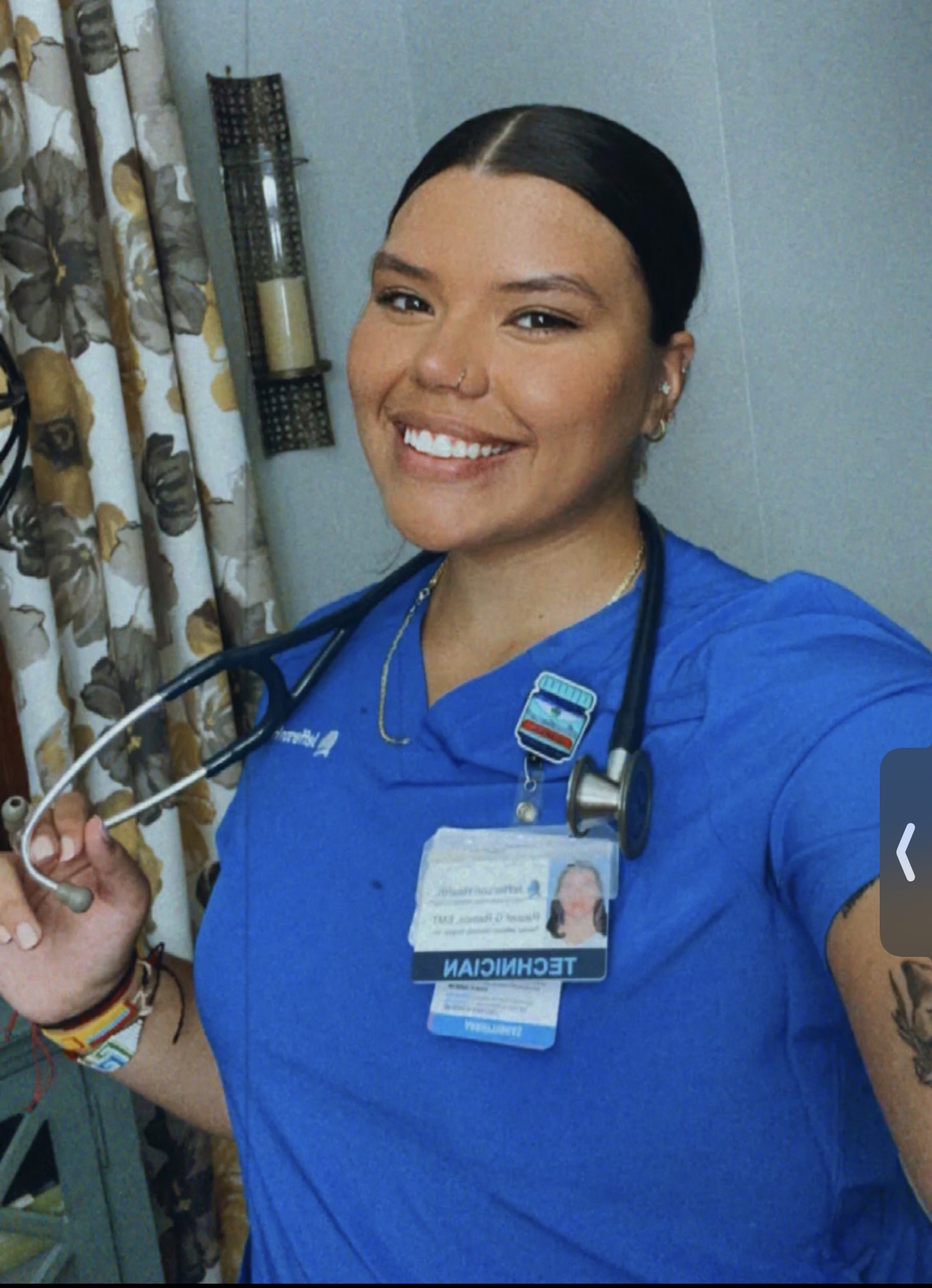"DISA  hosts first Drexel Indigenous Peoples Day celebration" [The Triangle, Photo by Kejsi Ruka]
hosts first Drexel Indigenous Peoples Day celebration" [The Triangle, Photo by Kejsi Ruka]
On Monday, Oct. 10 at 12 p.m., Drexel University’s Indigenous Students of the Americas (DISA) organized the first Indigenous Peoples Day celebration at the university. Held at Skyview Lounge in Macalister Hall, the event featured guest speakers, food, music, performances and more.
Indigenous Peoples Day has a short history at Drexel, only becoming an official university holiday in 2020 along with Juneteenth. Drexel Indigenous Students of the Americas is also a relatively new organization on campus, founded in March 2020 by co-founders Sky Harper and Raquel Ramos.
Drexel Indigenous Students of the Americas
This organization plans to unite students who identify as indigenous to either North and/or South America and spread awareness of their culture, traditions, and beliefs on and off campus. This will be done through hosting or assisting with events that pertain to indigenous culture. Furthermore, this group will function as a community for students to seek support. This organization hopes to form a cohesive support network to ultimately aid in the success of students of various indigenous cultures.

“I want to advocate for my people,” Raquel Ramos attests. “A lot of underserved populations come through the ER, and the quality of their care can vary. We need people who can translate, people who care, people who will go out of their way to assist patients in high stakes situations.”
In addition to her advocacy for inclusive care, Ramos is a community-driven student leader on Drexel’s campus. She is the co-founder of Drexel Indigenous Students of the Americas, a student group that is creating safe spaces and learning communities on campus about indigenous cultures. The group is open to Indigenous students as well as allies. Together, they are advocating for greater inclusion and representation on campus.
“I remember when Sky Harper, the president of Drexel Indigenous Students, reached out to me and told me that he had an idea to start a group for Native Americans on campus to increase their voice and representation on campus,” Ramos shares. “Immediately, I knew this was the right thing to do. Together, we decided to expand the group to Indigenous students, since many Latinx students, like myself, have Indigenous roots blended into our identities.”
Native American Heritage Month: Dr. Susan La Flesche Picotte and Dr. Lillie Rosa Monika-Hill
In recognition of Native American Heritage Month, the Drexel College of Medicine's Office of Diversity, Equity and Inclusion highlights two women who graduated from our school over 120 years ago, Dr. Susan La Flesche Picotte and Dr. Lillie Rosa Minoka-Hill. Their stories bring historical perspective to two aspects of present-day American Indian and Alaska Native (AI/AN) healthcare concerns: health disparities in AI/AN communities and the need to create opportunities for medical careers among AI/AN people.
Dr. Picotte, believed to be the first Native American person to earn an MD, graduated in 1889 from one of Drexel College of Medicine’s predecessor schools, Woman’s Medical College of Pennsylvania. Dr. Picotte’s father, Joseph LaFlesche, or Iron Eye, was a leader of the Omaha tribe in Nebraska and believed in education as well as assimilation into white society as a path for Native Americans -- a very divisive position among the Omaha. Picotte’s parents encouraged her education at several schools with a strong emphasis on assimilating Native Americans into white, European standards of knowledge and culture. Prior to medical school, Picotte attended Hampton Institute (now Hampton University), the historically Black university in Virginia that, at the time, followed a program fashioned on the government-supported Native American boarding schools, designed to "civilize" and "Christianize" Native American students while providing education and practical training.
Dr. Lillie Rosa Minoka-Hill
Dr. Lillie Rosa Minoka-Hill earned an MD from our school in 1899. She was our second Native American graduate, and sources suggest that she may have been the second Native American woman physician.
Minoka-Hill attended the Woman's Medical College of Pennsylvania, where she earned her degree in 1899. After graduating, she worked as an intern at the Woman's Hospital of Philadelphia and the Lincoln Institute in Philadelphia, a school for Indian girls. Through a student at Lincoln, she met Oneida Indian Charles Abram Hill, who she married in 1905, and soon after they moved to Oneida, Wisconsin, on his tribal reservation.
 Udall Foundation Scholarship [learn more via Drexel Pennoni Honors College/Undergraduate Research and Enrichment]
Udall Foundation Scholarship [learn more via Drexel Pennoni Honors College/Undergraduate Research and Enrichment]
The Udall Foundation awards approximately 50 scholarships of up to $7,000 to outstanding sophomore and junior level college students committed to careers related to the environment, tribal public policy, or Native American health care.
Scholarships are offered in any of three categories:
The Udall Foundation seeks future leaders across a wide spectrum of environmental fields, including policy, engineering, science, education, urban planning and renewal, business, health, justice, and economics.
